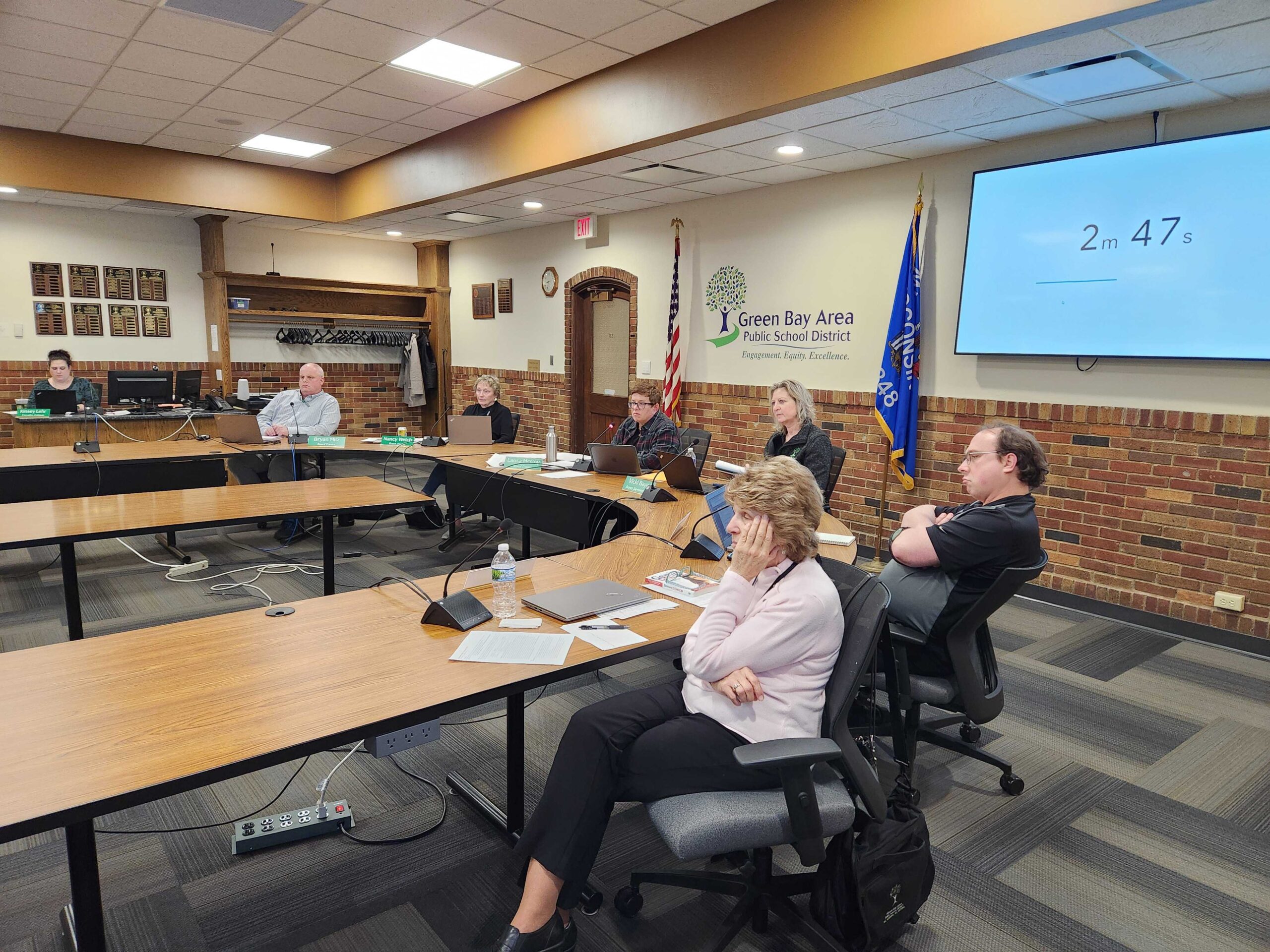An Ozaukee County Circuit Court judge on Friday ruled largely in favor of a Wisconsin Department of Public Instruction directive requiring Cedarburg School District to “seriously address” racial harassment and discrimination at its schools.
The ruling affirmed DPI’s verdict from last summer that the district had failed to adequately investigate a student’s reports of racial harassment.
“This is a case where a parent came forward with very real concern, and her student was really struggling, and the district did this very cursory investigation and then wanted to have that be enough and make the issue go away,” said Elisabeth Lambert, an American Civil Liberties Union attorney working on the case. “By upholding DPI here, what the court is kind of signaling to districts statewide is that when they get these kinds of complaints, they do have a duty to get the facts. They can’t just check boxes.”
News with a little more humanity
WPR’s “Wisconsin Today” newsletter keeps you connected to the state you love without feeling overwhelmed. No paywall. No agenda. No corporate filter.
In the initial complaint filed with the district last year, Jessie Mchomvu alleged that her two biracial sons had both experienced numerous incidents of racial harassment in Cedarburg schools. Among other incidents, her older son reported racial slurs overheard in the hallway and confederate flags on cars in the high school parking lot.
According to Lambert, the district did a cursory investigation and found no evidence of discrimination or harassment.
“Essentially, what the investigator did was ask a school administrator, ‘Are you aware of any issues?’ And the administrator said, ‘Nope, not aware.’ And that was the basis of the district’s conclusion,” Lambert said.
So Mchomvu and the ACLU took their complaints to the Wisconsin Department of Instruction, which decided that the district’s investigation had been inadequate and ordered them to redo it.
But instead of following the DPI directive, the district appealed the decision to the Circuit Court of Ozaukee County.
On Friday, a judge upheld “significant portions” of DPI’s original decision, affirming that Cedarburg had neglected to take appropriate actions to determine whether there was a racially hostile environment within its schools.
Technical loopholes
But it’s not entirely clear what the next steps will be.
The district issued what DPI called a misleading statement on Friday, saying, “The Court held that there was no basis for the DPI to have issued the District a corrective order.”
Lambert said this is just a procedural question about enforcement.
DPI’s process for Civil Rights compliance involves issuing a corrective action plan when violations are found, which they did in Cedarburg’s case. However, they said on Friday that a corrective action plan may not be the right process for enforcing re-investigations and will use a status conference this Friday to discuss other options.
“They’re trying to take what’s really a sort of procedural question about whether this corrective action plan is the appropriate tool and use it to mask the fact that substantively, there wasn’t an adequate investigation and they’ve been ordered to redo it,” Lambert said.
Cedarburg’s statement also said, “The DPI erred in its finding that the District did not follow its own anti-harassment policies when responding to certain harassment complaints.”
Lambert said this is another point that hinges on a technical loophole.
While the judge did reverse a portion of the DPI ruling that Cedarburg had not followed proper harassment complaint procedures, it was only for one specific instance.
In this case, Mchomvu’s older son overheard a group of students discussing how they wanted to drive a car through a crowd of Black Lives Matter protesters. He reported it to an assistant principal who, Lambert said, spoke with the students and their teachers and basically sent everyone back to class.
But, Lambert said, the assistant principal failed to report the incident to the school district’s compliance officer, which is required anytime an administrator learns that a student may have been harassed. This is why DPI initially ruled that Cedarburg failed to follow its own harassment policies.
But the reason the judge reversed the DPI ruling in this instance boils down to the district’s definition of harassment. Lambert said the district has a very narrow definition of harassment that includes comments directed at a target, but not those that just happen within earshot.
“It kind of flies in the face of existing anti-harassment law, both the state and federal level, which makes pretty clear that a hostile environment can be created when students just overhear comments that are aggressive or threatening towards a group of which they’re a member,” Lambert said.
Still, she said these technicalities don’t change the core substantive ruling that the district did not adequately investigate allegations of racial harassment.
The Cedarburg School District did not respond to a request for comment.
‘It just kept getting worse’
For the Mchomvu family, Friday’s ruling is bittersweet, coming after a long legal battle and years of harassment and trauma.
Jessie Mchomvu said the harassment of her older son, who graduated last year, started when he was in third grade — racial slurs, pinecones thrown at him. He was a pretty quiet kid, so when he came home upset, Mchomvu said she took it seriously.
She said she spoke with school staff, but nothing was ever done. Mchomvu said all she could do was cross her fingers and hope things got better.
“But it just kept getting worse,” she said.
Her younger son, now 13, was hearing racial slurs already on the kindergarten playground. And in the last few years, Mchomvu said the racial threats have grown increasingly violent.
So Mchomvu said she decided to start speaking up at school board meetings.
“That’s when it got really scary for the family,” she said. “We started getting attacked in the community itself and we were actually chased out of Cedarburg.”
When classmates started saying they admired Kyle Rittenhouse, Mchmovu’s younger son got scared and asked to leave. Now the family lives in Milwaukee. And after some time away, Mchomvu’s son feels different and decided to continue school in the Cedarburg School District.
“He’s like, ‘I’m not gonna let these people chase me away from the only school district and only friends I’ve ever known. I’m gonna stick it out,’” Mchomvu said.
She added that not everyone in the Cedarburg School District is part of the problem.
“My youngest has wonderful staff members that I know are wonderful allies and I appreciate them so much. It’s just the higher up you go in this school district, you don’t get that same support. You don’t get that same allyship,” Mchomvu said. “They’d rather be right than make change.”
Mchomvu’s case is not the only report of racial harassment in the district. And just last week, the ACLU filed a complaint on behalf of a family in the Oshkosh Area School District to investigate a “racially hostile environment.”
“There have also been a number of families that have spoken out at school board meetings that have raised additional issues of racial slurs and harassing comments over the last year and a half. So there’s sort of an extensive record now of complaints,” Lambert said.
The organization Bridge the Divide filed an appeal with DPI, alleging that Cedarburg School District is not meeting state requirements to provide a curriculum that represents Indigenous and other marginalized communities.
Mchomvu said Friday’s ruling has reignited some threats and hatred towards her family. But despite the challenges they’ve faced, she doesn’t want her experience to stop other families from speaking out.
“We understood that we might get knocked down. But we also understood that it’s going to make the difference for that next generation coming up so they don’t have to go through what my sons did,” Mchomvu said.
Wisconsin Public Radio, © Copyright 2025, Board of Regents of the University of Wisconsin System and Wisconsin Educational Communications Board.






